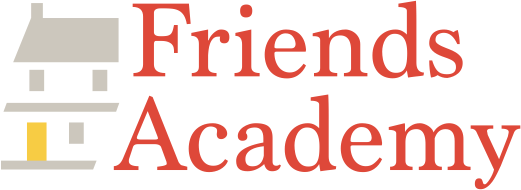Assessing Academic Rigor: How to Find the Best Fit for Your Child
Written by Taisha Thompson
Finding and choosing the right educational fit for your child involves evaluating various aspects of the school, and one of the most important considerations is its level of academic rigor. A rigorous education challenges students to think critically, develop problem-solving skills, and grow into confident, capable learners and adults.
But rigor is not one-size-fits-all. It’s important that you find the right balance that aligns with your child’s strengths and needs.
We will help you understand what rigor looks like in different educational stages and how to determine if a school’s approach is the right fit for your child.
What is Academic Rigor?
Academic rigor refers to the depth and complexity of academic content, as well as the strategies teachers use to help students engage with the content. Schools that offer appropriate rigor challenge students to tackle complex but achievable tasks.
Key aspects of academic rigor include:
- A curriculum that emphasizes analysis, reflection, and application.
- Teaching methods that promote collaboration and critical thinking.
- Meaningful assessments that measure understanding, not memorization.
- Development of soft skills like resilience and teamwork that can be transferred to new and untested disciplines.
Further Reading: The Benefits of Private Schooling
Challenging Students to Grow
Being challenged academically means consistently managing tasks that require effort, creativity, and persistence. Effective academic challenges push students beyond their comfort zone, fostering growth without causing frustration. Better yet, schools that offer appropriate rigor design systems to support students as they stretch beyond their comfort zones.
Signs of appropriate rigor include tasks that prompt independent thought, require persistence, and allow students to engage with complex ideas. The right balance of difficulty and support fosters resilience, a sense of accomplishment, and a lifelong motivation to seek learning opportunities.
Effective schools, ones that meet the needs of their students and cultivate growth, scale rigor to ensure each student is appropriately challenged. This can include:
- Differentiated instruction that tailors lessons to varying abilities.
- Assignments with adjustable complexity and/or learning outcomes.
- Regular assessments that guide adjustments in teaching strategies.
- A willingness to modify teaching approaches based on individual progress and feedback.
Assessing Rigor at Each Grade Level
Understanding how children are challenged at different stages of development and grade levels can help you find the best academic fit for your child.
Early Childhood
Early childhood programs should ignite curiosity and lay the groundwork for lifelong learning. Play-based learning should take precedence over academic pressure and performance.
Look for:
- Exploration and Play: A balance of structured activities and unstructured play that encourages exploration and creativity.
- Skill Development: Activities that build early literacy and numeracy skills in an engaging way.
- Social-Emotional Growth: Programs that emphasize sharing, empathy, and perseverance through collaborative tasks and interactions.
Lower School/Elementary
At this stage, children develop foundational knowledge and critical thinking abilities. Classrooms meeting the right level of rigor at this stage emphasize:
- Mastery of Core Skills: A strong focus on reading, writing, and mathematics to create a solid academic foundation.
- Project-Based Learning: Interactive projects and experiments that integrate multiple subjects, fostering creativity and application.
- Critical Thinking: Activities that encourage questioning, analyzing, and problem-solving, such as science fairs or math challenges.
- Introduction to Responsibility: Accountability through homework, group tasks, and classroom roles.
Middle School
Middle school represents a pivotal transition period when students begin to think abstractly and take on more responsibility. Rigor at this level often includes:
- Abstract Reasoning: Introduction to advanced concepts in math, science, and literature that require students to think beyond concrete ideas.
- Interdisciplinary Learning: Projects that connect multiple subjects, such as history and literature or math and science, demonstrating real-world relevance.
- Time Management Skills: Assignments that require planning, organization, and meeting deadlines to build independence.
- Social-Emotional Support: Programs that help students navigate the social and emotional challenges of adolescence, fostering resilience and teamwork.
College Prep/Upper School
High school is a time for deep exploration and preparation for future academic and professional pursuits. Students often feel an increased sense of rigor in the classroom at the same time as society is giving them more and more responsibility. This can be a challenging time for them. Rigor at this stage includes:
- Advanced Coursework: Opportunities to take honors and AP classes that provide college-level challenges as well as guidance in balancing courseload.
- Research and Leadership: Independent research projects, leadership roles in clubs or organizations, and participation in internships or community service.
- Comprehensive Skill Development: Emphasis on skills that are essential for success in higher education, such as critical reading, analytical writing, and public speaking.
- College and Career Readiness: Guidance programs that help students explore career paths, prepare for standardized tests, develop well-rounded personal self-narratives, and build strong college applications.
Determining the Right Rigor for Your Child
Finding the right level of academic rigor involves understanding your child’s strengths and needs, as well as evaluating potential schools to ensure they fit with your family’s educational goals.
Consider both self-reflection about your child and targeted questions for the schools you are considering.
- Reflecting on your child’s abilities, interests, and learning preferences. Questions to consider are:
-
What types of activities does my child gravitate toward, and how do they approach challenges?
-
Does my child show enthusiasm for certain subjects or express frustration with others?
-
How does my child handle constructive feedback and setbacks?
-
- Asking schools how they define and implement rigor. Questions to ask the school:
- How do teachers balance academic challenges with emotional and social support?
- What are the opportunities for individualized learning and differentiated instruction?
- What methods are used to measure and support student progress?
- Observing classrooms to gauge engagement and support. Questions to consider during visits:
- Are students actively participating in lessons and discussions?
- How do teachers foster a supportive yet challenging environment?
- What resources or tools are available to help students succeed?
- Monitoring how your child responds to challenges in their academic environment. Questions to reflect on:
- Does my child feel motivated and confident or overwhelmed and disengaged?
- Is my child showing signs of growth and improvement in academic and personal skills?
- How does the school communicate about your child’s progress and challenges?
Explore Friends Academy
By thoughtfully reflecting on your child’s unique needs and engaging with schools to understand their philosophy, you can find an environment where your child will flourish. The right school not only challenges students academically but also nurtures their curiosity, resilience, and confidence, ensuring they are prepared for future success.
Schools that strike the perfect balance will ignite growth, foster resilience, inspire curiosity, and equip your child with the skills needed to navigate future challenges with confidence.
Since 1876, Friends Academy has set the standard of academic excellence on Long Island. Our intentionally designed small class sizes and dedicated teachers provide a personalized learning approach, encouraging both academic achievement and emotional well-being. At Friends Academy, we tailor rigor to be a dynamic journey that evolves with each student's growth and potential.
Discover more about our distinctive educational philosophy, rooted in Quaker values, by accessing our comprehensive guide to Friends Academy. Explore how we create a balanced and supportive environment where every student thrives.



